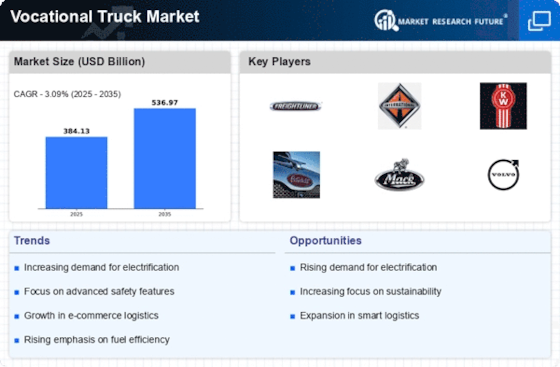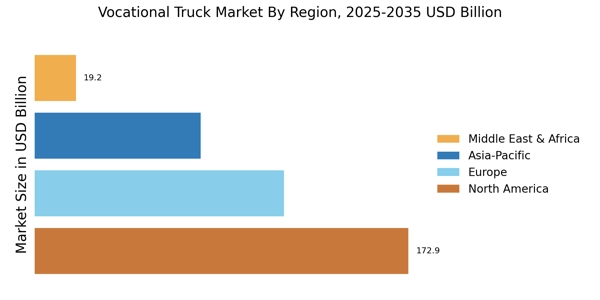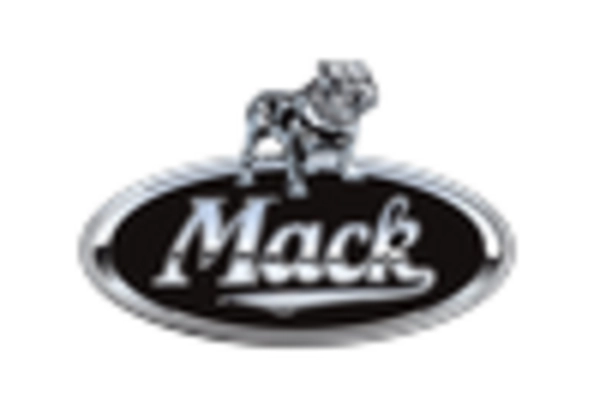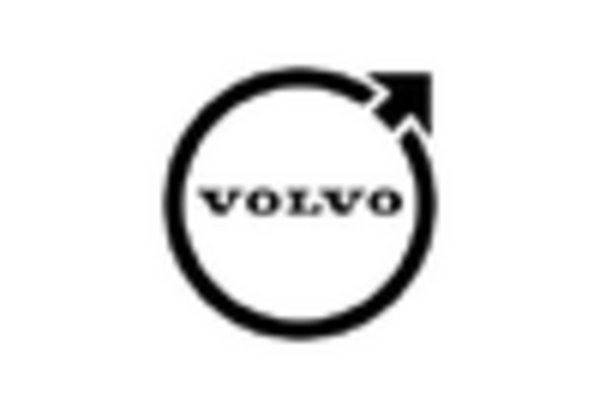Infrastructure Development Projects
Ongoing infrastructure development projects across various regions are contributing to the expansion of the Vocational Truck Market. Governments and private entities are investing heavily in construction, road maintenance, and public works, necessitating the use of vocational trucks for transporting materials and equipment. In 2025, the market is expected to witness a substantial uptick in demand for trucks designed for construction and heavy-duty applications. This trend is indicative of a broader commitment to enhancing infrastructure, which in turn fuels the need for specialized vocational trucks that can meet the rigorous demands of construction sites and urban development.
Technological Integration and Automation
The integration of advanced technologies and automation in vocational trucks is reshaping the Vocational Truck Market. Innovations such as telematics, GPS tracking, and autonomous driving capabilities are becoming increasingly prevalent. In 2025, it is projected that a significant portion of new vocational trucks will feature these technologies, enhancing operational efficiency and reducing costs. Companies are recognizing the potential of technology to optimize fleet management and improve service delivery. This trend not only boosts productivity but also positions the industry for future growth as businesses seek to leverage technology to gain a competitive edge.
Sustainability and Environmental Concerns
Sustainability and environmental concerns are becoming pivotal drivers in the Vocational Truck Market. As awareness of climate change and environmental degradation grows, there is a marked shift towards eco-friendly vocational trucks. In 2025, the market is likely to see an increase in demand for electric and hybrid trucks, as companies aim to reduce their carbon footprint. This transition is supported by government incentives and consumer preferences for sustainable practices. The emphasis on sustainability is not only reshaping product offerings but also influencing the overall direction of the vocational truck industry, as stakeholders prioritize environmentally responsible solutions.
Regulatory Compliance and Safety Standards
The Vocational Truck Market is increasingly influenced by stringent regulatory compliance and safety standards. Governments are implementing regulations aimed at reducing emissions and enhancing road safety, which necessitates the adoption of advanced technologies in vocational trucks. In 2025, it is anticipated that manufacturers will focus on producing trucks that not only comply with these regulations but also incorporate safety features such as collision avoidance systems and improved braking technologies. This shift towards compliance and safety is likely to drive innovation within the industry, as companies strive to meet evolving standards while maintaining operational efficiency.
Increasing Demand for E-commerce Deliveries
The rise in e-commerce activities has led to a notable increase in demand for vocational trucks, particularly for last-mile delivery services. As consumers increasingly prefer online shopping, businesses are compelled to enhance their logistics capabilities. This trend is reflected in the Vocational Truck Market, where the demand for versatile trucks capable of navigating urban environments is surging. In 2025, it is estimated that the vocational truck segment catering to e-commerce will account for a significant portion of the market share, driven by the need for efficient delivery solutions. Companies are investing in fleets that can handle diverse delivery requirements, thereby propelling growth in the vocational truck sector.

















